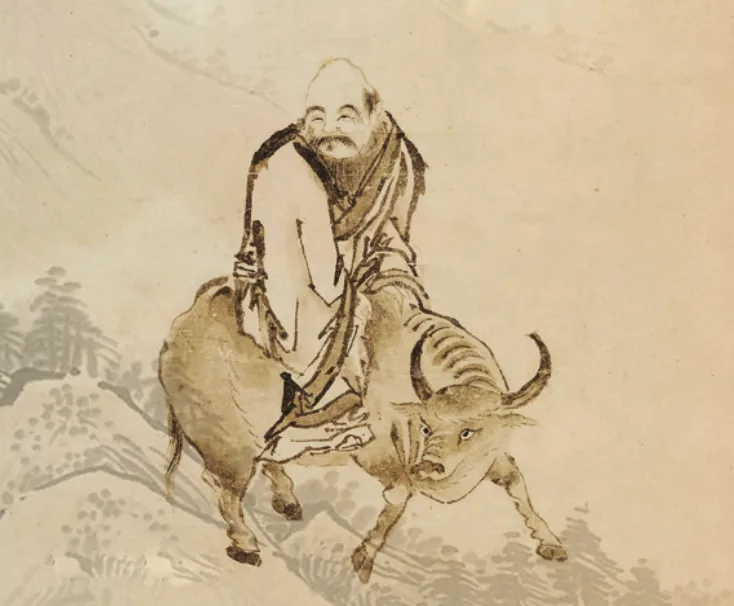
Tai Chi is a practice deeply rooted in Taoist philosophy, and one of the most influential figures in Taoism is Laozi, the supposed founder of the philosophy. Although Laozi himself was never claiming to be the originator of this philosophy but was merely building on the work of those who had gone before him. Laozi is a mysterious figure who lived in ancient China, and his life and teachings have had a profound impact on the development of Chinese culture and philosophy. In this blog post, we’ll explore the life and times of Laozi, as well as his place in Taoist philosophy.
Early Life and Career
Laozi, which means “Old Master” in Chinese, is believed to have been born in the state of Chu in present-day Henan province in China in the 6th century BCE. He is said to have been a contemporary of Confucius, who was born a few decades later, and the two men are often compared and contrasted in Chinese philosophy.
According to legend, Laozi was a court librarian in the state of Zhou, where he was renowned for his knowledge of the classics and his wisdom. He was approached by a young Confucius, who sought his advice on how to govern the state. Laozi supposedly responded, “Ruling a big state is like cooking a small fish. You don’t need to do too much, just make sure it’s done right.”
Writing the Tao Te Ching
At some point in his life, Laozi grew disillusioned with the political situation in China and decided to leave his job and travel westward. As he was leaving the state of Zhou, the gatekeeper asked him to write down his wisdom before departing. This led Laozi to write the Tao Te Ching, one of the most important texts in Chinese philosophy.
The Tao Te Ching is a collection of 81 short chapters that express Laozi’s philosophy of life and the universe. The text is deeply rooted in the concept of the Tao, which can be translated as “the Way” or “the Path”. The Tao is the fundamental principle that underlies all of existence, and it is the source of all things.
The Tao Te Ching teaches that the best way to live life is to follow the Tao, which is to say that we should live in harmony with the natural world and not try to impose our will on it. Laozi believed that by following the Tao, we can achieve inner peace and fulfillment, and that we can contribute to the greater good of society by living a simple and humble life.
Legacy
Laozi’s teachings were highly influential in the development of Taoism, which became one of the major religions of China. Taoism emphasizes the importance of living in harmony with nature, seeking balance and moderation in all things, and cultivating a spiritual awareness of the world around us. Tai Chi, with its slow and deliberate movements, is a physical manifestation of many of these Taoist principles.
Laozi himself became a legendary figure in Chinese history, and many stories and legends grew up around him. According to one legend, he lived to be over 100 years old and then rode off on a water buffalo, never to be seen again. Another legend says that he worked as a keeper of archives in the imperial court until his death, and that he was buried in the same tomb as the emperor.
Regardless of the veracity of these legends, Laozi’s impact on Chinese culture and philosophy cannot be overstated. His teachings continue to inspire people around the world to live in harmony with nature and seek balance and inner peace.
Conclusion
Laozi was a visionary philosopher whose teachings continue to resonate with people today. His emphasis on living in harmony with the natural world, seeking balance and moderation, and cultivating inner peace has had a profound impact on Chinese culture and philosophy. As practitioners of Tai Chi, we can find inspiration in Laozi’s teachings and strive to embody his principles in our practice. Tai Chi is not just a physical exercise, but a holistic practice that encompasses the mind, body, and spirit.
Through the slow and deliberate movements of Tai Chi, we can cultivate a sense of presence and awareness of our surroundings. We can learn to move with grace and fluidity, and to let go of tension and stress. By incorporating the principles of the Tao into our practice, we can find greater balance and harmony within ourselves and with the world around us.
In conclusion, Laozi was a philosopher whose teachings have had a profound impact on Chinese culture and philosophy. His emphasis on living in harmony with the natural world, seeking balance and moderation, and cultivating inner peace continue to inspire people around the world today. As practitioners of Tai Chi, we can learn from Laozi’s teachings and strive to embody his principles in our practice, finding greater balance and harmony in our lives as a result.
Leave a Reply